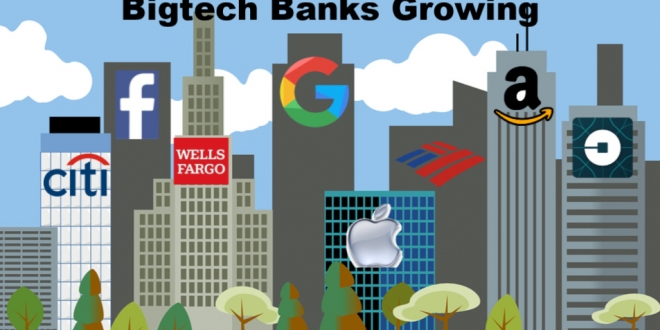It’s official. In 2020, Google will introduce checking accounts for its Google Pay customers in partnership initially with Citigroup and Stanford Federal Credit Union.
Analysts expect the new checking account will not carry the Google name but rather be branded with the partner bank name. That’s a curious marketing decision at first glance but analysts see other goals in sight for the search engine giant.
It’s the data stupid

Unlike Apple with its new credit card, CB Insights senior intelligence analyst Arieh Levi told CNBC it’s all about the data. “That’s a marked difference from Apple and others, and it shows that Google is primarily focused on data to feed its core ad business, and less so on acting as a full-fledged bank,” Levi said.
Google has 54% of US product searches compared to Amazon with 46% but Amazon continues to compete hard to grow its search traffic and advertising revenue accordingly.
Investopedia reports “A staggering $24.1 billion of Google’s $27.77 billion revenue for Q3 2018 was from advertising – roughly a 22% increase from $19.8 billion in Q3 2017.” With 86.78% of its revenue coming from advertising, the new checking account makes total sense as a big data strategy.
By contrast, Investopedia says Amazon Advertising Services, one of the company’s fastest-growing businesses, earned $10.1 billion in 2018 and expects 50% growth through 2020 to reach a 7% share of the US online advertising market. That compares to Google’s 37.1% and Facebook’s 20.6% advertising market share in the US.
“Google is likely entering into these partnerships to increase its insights into consumer purchase behavior (and consumer finances more broadly),” Wells Fargo’s internet analyst Brian Fitzgerald wrote in a recent client newsletter.
Forget fintech startups, watch for bigtech banking

As if traditional banks and financial service providers didn’t have enough to worry about from nimble fintech startups, now they need to look over their shoulders for challenges from bigtech.
Thousands of US banks already offer Google Pay services for customers, so expanding its financial services ecosystem in order to learn more about consumer spending through data seems like a smart strategic move by Google.
“We’re exploring how we can partner with banks and credit unions in the US to offer smart checking accounts through Google Pay, helping their customers benefit from useful insights and budgeting tools, while keeping their money in an FDIC or NCUA-insured account,” a Google spokesman said in a statement.
The consensus of analysts seems to be that Google doesn’t have to make a lot of money by offering banking services. The big money is in big data! Always has been and that’s evident by the strategic moves into various market segments of financial services by everyone from Google, Facebook, and Uber to Apple and Amazon.
Sen. Mark Warner, D-Va, expressed his reservations about tech companies when he told CNBC’s “Squawk Box” he was concerned about giant tech companies entering new fields [such as financial services] before a regulatory framework is in place.

Google told the Wall Street Journal that it would not sell customer financial data, nor does it use information from its Google Pay digital wallet services for advertising purposes.
That’s why Google may be quite content with letting banks brand the “Google Bank” checking account with their own bank branding. Meanwhile, the tech titan can continue to do what it does best and that is mine consumer data and convert it into revenue-generating business.
The near future may get even more crowded with bigtech banks and financial services. Witness Facebook Pay and cryptocurrency Libra and Apple’s credit card. How about Amazon’s efforts to offer payments (Amazon Pay) and loans to support its core e-commerce business? Then there’s Uber Money with a digital wallet, credit and debit cards.
Politicians and regulators are expressing concern. Traditional banks are nervous about losing business, customers, and prophets. Fintechs are moving fast to innovate, with sometimes good and sometimes poor outcomes for consumers. Bigtech banks are looming on countless fronts. And the poor consumer is confused and concerned about privacy and data security.
The question is, will consumers and their data be better off with these new fintech financial services and bigtech banks?

